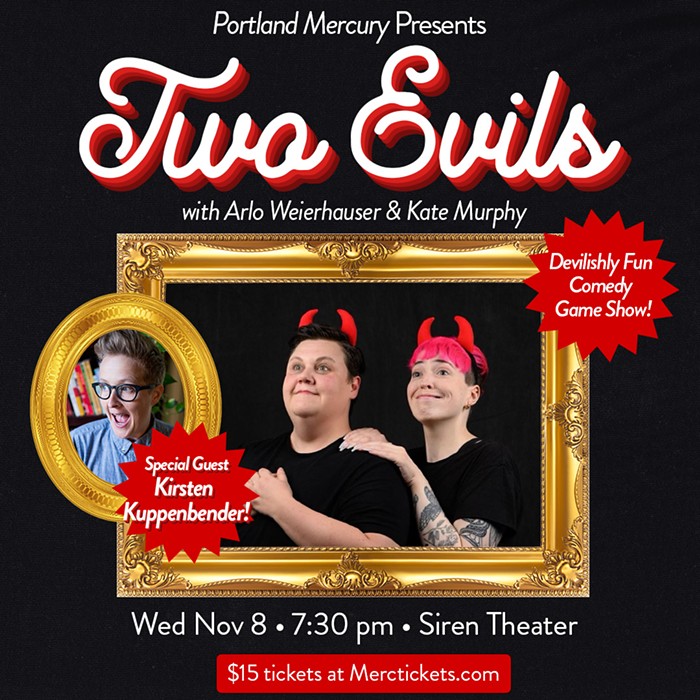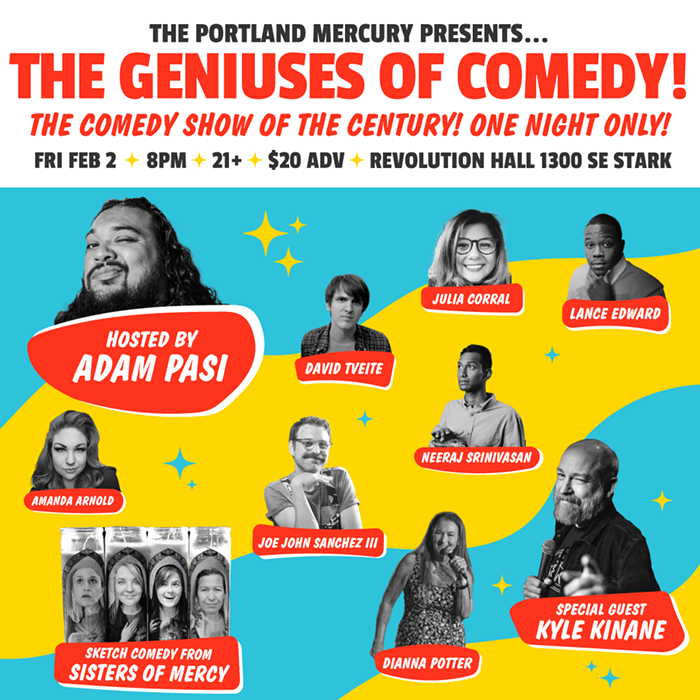LAST DECEMBER, Portland comedian Jeremy Eli met Jason Lamb, host of Funemployment Radio's Karl Show! (Starring Jason) and the Hollywood Theatre's Movies in Black and White. By January, they'd launched Minority Retort, Portland's first regular stand-up showcase focusing on comedians of color. The monthly show debuted to a packed audience, and has since secured some of Portland's best stand-up lineups. Case in point: This Friday's co-headliners, Elicia Sanchez and Bri Pruett. Here's what Eli and Lamb told me about diversity in comedy, "the whitest city in America," and what you can do when it seems like there's nothing you can do.
MERCURY: What made you decide to start Minority Retort?
JEREMY ELI: We're trying to display the amount of diversity in Portland that exists, and to appeal to a diverse audience that includes a lot of people of color who I don't see at comedy shows as much as I'd like to.
JASON LAMB: That's not bad.
JE: Thank you.
JL: Like Jeremy said, [we're] trying to reach a diverse audience—this is just another one of the bullets that I'm using to try to strike out against the whole "whitest city in America" thing, which I've really just railed against ever since I moved here.
Jason, was the Karl Show! how you got involved with Minority Retort?
JL: Basically, yeah—
JE: I was wondering... if the podcast came first or Movies in Black and White. I guess the podcast?
JL: Who's doing this interview?
JE: I just realized I don't know anything about you!
JL: The podcast came first... that's how I started interviewing comedians and [when] we started doing the show, that's when the comedy scene really started to sprout up around here, so we got a lot of the local comedians on the show, and I've always loved comedy and just been fascinated with what comedians do. They're like magicians to me. So now you know. Now you know everything about me.
JE: Yeah, finally!
JL: There's nothing after that.
JE: And I just tell jokes.
That's not all, right?
JL: No, not at all.
JE: I host the show. I had hit a certain point of frustration, hearing people constantly say, "Yeah, there's no black people in Portland." I've lived here for two years and I've not really seen that. I realized one day that so many of my friends were brown or black and it took no effort, so I didn't quite understand how some people were insulated from that. After that, I started looking out to people, to push this idea forward that there are people of color in this city.
How did you end up partnering with Curious Comedy?
JE: [We] were reaching out to venues, and I know one black performer [at Curious] expressed frustration in light of Darren Wilson's—it's not even an acquittal—non-indictment. And they understood how that could be. So word got out between us and Curious that we were all exactly into the same goal around the same time. It worked out perfectly.
What about diversity in comedy more broadly?
JE: When I moved here, I was under the assumption that (1) the comedy scene was really good, and (2) there were no black people in Portland. And then I got here and found out that Nathan Brannon was Portland's Funniest Person that year, so... it immediately was like, "Oh, this might not be what it's sold as." But I do think that diversity in comedy is very important, because it gives you different perspectives... since the comedy boom of the '80s, comedy's appealed to so many people, it's been so broad, and it has always had these really outspoken, strong voices representing under-looked groups.
JL: Yeah. I hear a lot of people on social media or wherever saying, with a lot of the turmoil that's gone on in terms of race recently, people ask me what they can do. And that's a really hard question. I don't really know what you can do—
JE: Listen.
JL: Right. And I think part of that is... to get people in the same room [who are from diverse backgrounds] to share an experience together. And I think that's part of how conversation starts and understanding starts.



















